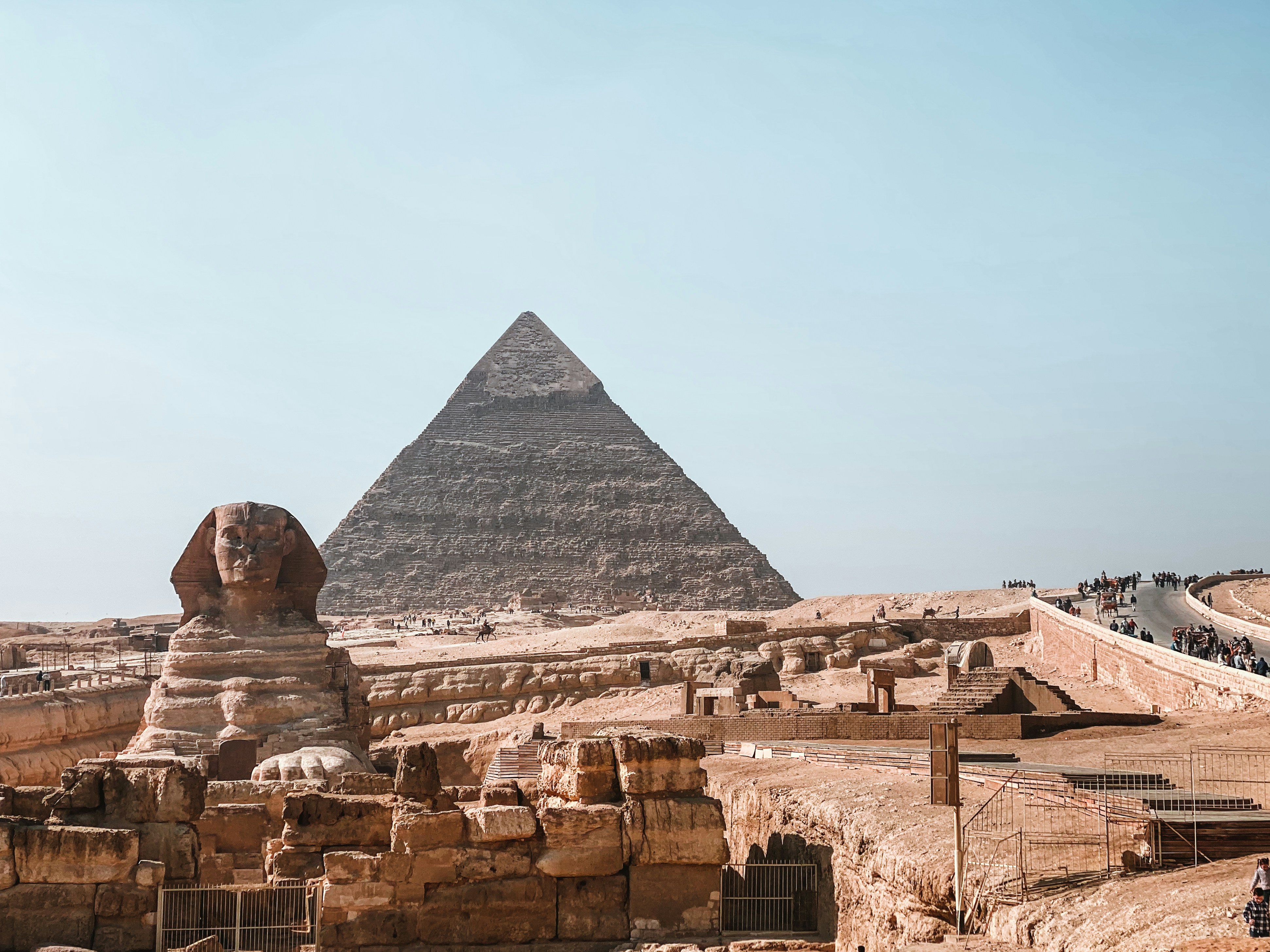Rich Historical Heritage
Egypt boasts one of the most extensive and captivating historical heritages in the world, drawing millions of visitors each year. The ancient civilization of Egypt has left behind an unparalleled legacy, still evident in its iconic landmarks such as the Pyramids of Giza, the Great Sphinx, and the intricate temples of Karnak and Luxor. These sites play a significant role in shedding light on Egypt’s past, offering insights into the intriguing lives of its ancient inhabitants.
The Pyramids, particularly the Great Pyramid of Khufu, stand as a testament to the architectural prowess of the ancient Egyptians. Constructed over 4,500 years ago, these grand structures served as monumental tombs for pharaohs, showcasing the society’s beliefs in the afterlife and the importance of preserving their rulers’ legacies. Adjacent to these monumental tombs lies the enigmatic Great Sphinx, a statue with the body of a lion and the head of a pharaoh, symbolizing strength and wisdom. Together, these landmarks form a connection to an era that shaped the course of human history.
Equally remarkable are the temples of Karnak and Luxor, which served as religious centers dedicated to the worship of the gods. Karnak, one of the largest temple complexes in the world, features impressive obelisks, hypostyle halls, and sacred lakes, inviting visitors to immerse themselves in its historical grandeur. Luxor Temple, with its stunning architecture and rich decorative reliefs, continues to be a site of religious significance, illustrating the continuing influence of ancient beliefs in contemporary Egypt.
Visiting these historical sites allows travelers to not only admire their visual splendor but also appreciate the stories they tell about ancient civilizations. The architectural magnificence and the cultural narratives embedded in these monuments provide an invaluable perspective on the human pursuit of knowledge, power, and spirituality. Consequently, Egypt’s rich historical heritage serves as a compelling reason to explore this extraordinary destination in 2025.
Unique Cultural Experiences
Visiting Egypt offers a profound opportunity to immerse oneself in the country’s vibrant cultural fabric, which is characterized by a rich blend of traditions and practices that have evolved over millennia. One of the most engaging aspects of Egyptian culture is its music and dance, which play an integral role in social gatherings and celebrations. Travelers can experience traditional performances, such as folk music accompanied by live instruments, or witness traditional dances like the captivating Tanoura, which features whirling dancers spinning in colorful skirts. These immersive experiences offer a glimpse into the communal joy and storytelling that’s deeply rooted in Egyptian heritage.
Another highlight of Egyptian culture is its culinary delights. Authentic local dishes such as koshari—a hearty mix of pasta, rice, and lentils crowned with tomato sauce and chickpeas—are not to be missed. Sampling street food, like falafel made from fresh fava beans, can provide a genuine taste of everyday life in Egypt. The bustling markets, known as souks, are perfect for exploring local produce and experiencing the lively atmosphere where vendors proudly showcase their culinary specialities, offering a sensory feast for travelers.
Moreover, partaking in Egyptian festivals enriches the cultural encounter. Events such as the Abu Simbel Sun Festival, where sunlight illuminates the temple’s inner sanctum, and the Cairo International Book Fair, provide unique opportunities for interaction with locals and a deeper appreciation of Egyptian customs and values. Engaging in these events allows visitors to appreciate not only the beauty of Egyptian traditions but also the warmth of its people, ultimately fostering a meaningful connection with the land and its rich history.
Stunning Natural Landscapes
Egypt is renowned not only for its rich history and cultural heritage but also for its stunning natural landscapes that offer a remarkable variety of experiences for travelers. One of the most striking features is the vast Sahara Desert, which stretches across much of the country and presents a mesmerizing expanse of golden sand dunes, rocky plateaus, and unique geological formations. Adventurous tourists can embark on desert safaris to explore this expansive area, engaging in activities such as dune bashing, camel trekking, and even stargazing under the breathtaking night sky.
In addition to the desert, the lush Nile Valley is a symbol of life and beauty in Egypt. This fertile area nourished by the Nile River contrasts sharply with the surrounding arid desert, supporting vibrant agriculture and dense palm groves. Visitors can experience the tranquility of this region through leisurely felucca rides on the Nile, where the gentle breeze and scenic views create a perfect atmosphere for relaxation. The resplendent banks of the Nile also serve as a backdrop for picnics and photo opportunities, capturing the heart of Egypt’s natural allure.
Another gem in Egypt’s diverse natural offerings are the serene oases scattered throughout the western desert, such as Siwa and Bahariya. These oases provide a peaceful retreat with lush greenery, natural springs, and unique salt lakes. Travelers can explore ancient ruins, engage in eco-tourism activities, or simply unwind in the pristine surroundings. Furthermore, the Red Sea coastline presents an entirely different adventure, boasting world-class dive sites and beautiful sea resorts. This region is perfect for snorkeling, scuba diving, or merely soaking up the sun on pristine beaches. Each of these landscapes contributes to the multifaceted beauty of Egypt, making it an irresistible destination for those seeking outdoor adventures and a connection with nature.
Modern Developments and Infrastructure
Egypt is undergoing a significant transformation in its infrastructure, enhancing its appeal to both domestic and international tourists. The modernization efforts have focused on various sectors, significantly improving transportation, hospitality, and technology. This has not only made the country more accessible but has also enriched the overall travel experience for visitors in 2025.
One of the most notable developments is in transportation, where the government has invested heavily in upgrading its road networks, airports, and rail systems. The Cairo Metro has seen expansions, making it easier to navigate the city and reducing travel time. Additionally, new airports are being constructed, such as the recently opened New Alamein Airport, which will cater to international travelers, thereby facilitating greater accessibility to popular tourist destinations.
In terms of hospitality, Egypt is witnessing a boom in the construction of modern hotels and resorts that cater to a range of preferences and budgets. From luxury accommodations overlooking the Nile to budget-friendly options in Egypt’s lesser-known towns, these developments ensure that visitors can enjoy a comfortable stay. Furthermore, many existing establishments are enhancing their services and facilities to align with global standards, providing a blend of local culture with modern amenities.
Moreover, Egypt’s commitment to sustainable tourism illustrates a forward-thinking approach that aligns with global environmental standards. The government is promoting responsible tourism practices, emphasizing the importance of preserving the rich cultural heritage while accommodating the influx of travelers. Efforts in recycling, renewable energy usage, and environmentally friendly construction practices are being prioritized, thereby ensuring that tourism remains beneficial for both visitors and local communities.
By seamlessly blending modern developments with its rich traditions, Egypt is positioning itself as an ideal travel destination for 2025, ensuring that tourists can enjoy a unique experience that honors its historic landscape while delivering the comforts of contemporary infrastructure.



0 Comment